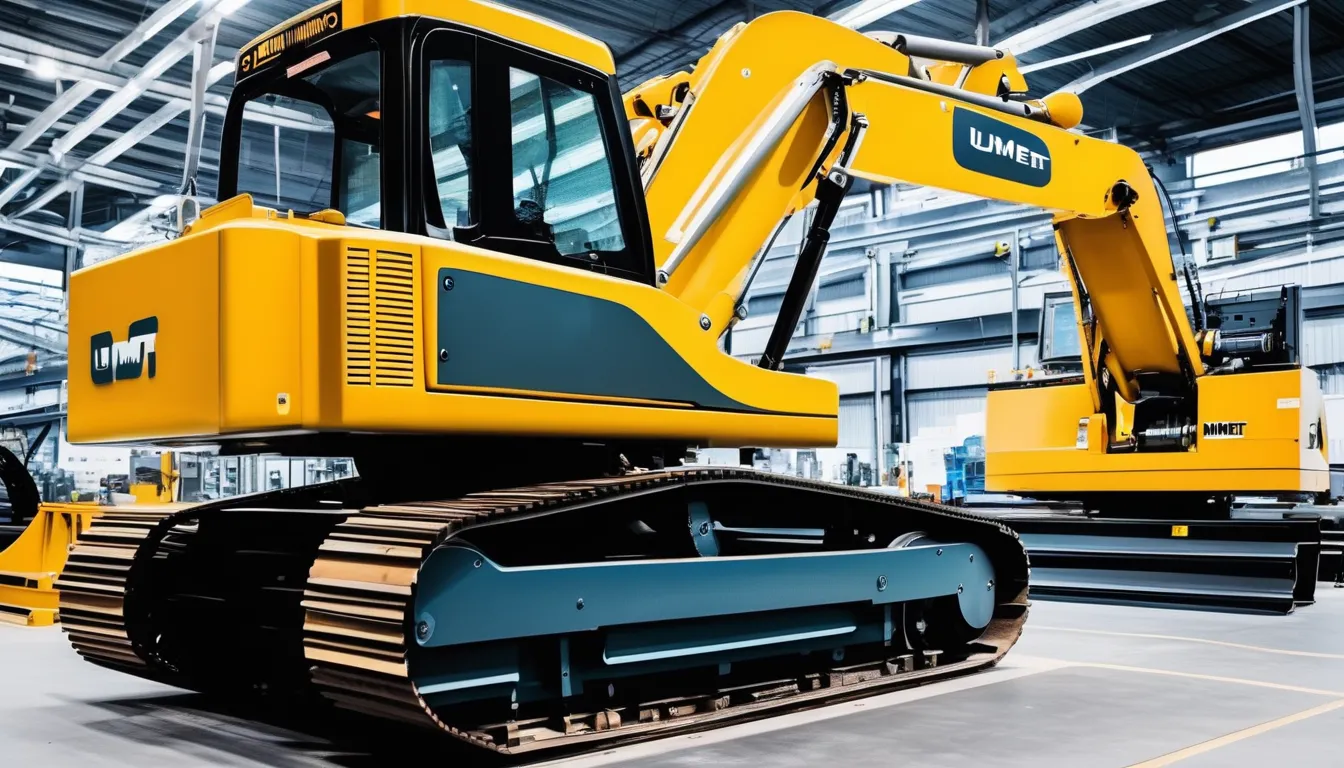When considering the growth of your business, exploring the option of purchasing used machinery can offer you a strategic advantage worth considering. By tapping into the cost-effective nature of acquiring pre-owned equipment, you can not only optimize your financial resources but also enhance your operational capabilities efficiently. This approach presents a compelling opportunity to propel your business forward, unlocking various benefits that could contribute significantly to your expansion goals.
Cost Savings Opportunity
Looking to expand your business while keeping costs in check? Purchasing used machinery presents a significant cost savings opportunity for your growing enterprise. By opting for pre-owned equipment, you can acquire essential machinery at a fraction of the cost of buying new. This initial cost savings allows you to allocate your financial resources strategically, potentially freeing up funds for other areas of your business, such as marketing or hiring additional staff.
Beyond the upfront savings, used machinery also offers long-term cost benefits. Often, used equipment comes with lower maintenance costs compared to new machinery.
Additionally, some sellers may offer warranties or service agreements, further reducing the risk of unexpected expenses down the line.
When considering the cost savings associated with purchasing used machinery, it’s essential to conduct thorough research, inspect the equipment carefully, and ensure that it meets your operational requirements. By making informed decisions, you can leverage the cost advantages of buying used machinery to fuel the growth of your business efficiently.
Reduced Initial Investment
With a reduced initial investment, purchasing used machinery can provide your business with a cost-effective solution for acquiring essential equipment. By opting for pre-owned equipment, you can significantly lower your upfront costs compared to buying brand new machinery. This reduction in initial investment allows you to allocate your financial resources more efficiently, freeing up capital that can be used for other areas of your business, such as marketing, hiring, or expanding your operations.
Choosing used machinery also enables you to access high-quality equipment at a fraction of the price of new machinery. This means that you can acquire the necessary tools for your business without compromising on performance or reliability.
Additionally, with advancements in technology, many used machines offer modern features and capabilities that align with industry standards, further enhancing the value proposition of purchasing second-hand equipment.
Faster Implementation Process
To expedite the integration of used machinery into your operations, focusing on the “Faster Implementation Process” is key. When you opt for used machinery, you significantly cut down the time it takes to get the equipment up and running. Unlike new machinery that often comes with longer lead times due to manufacturing and delivery schedules, used machinery is readily available. This means you can quickly bring in the equipment, set it up, and start using it to boost your production capabilities without prolonged waiting periods.
Moreover, used machinery generally requires less customization or specialized training since it has already been in operation elsewhere. Your staff can familiarize themselves with the equipment faster, reducing the time needed for training and adaptation.
This streamlined implementation process allows you to capitalize on the benefits of the machinery sooner, increasing your operational efficiency and productivity in a shorter timeframe. Embracing the quicker implementation of used machinery can be a strategic move towards enhancing your business growth.
Minimized Depreciation Impact
Considering used machinery can also have a significant positive impact on minimizing depreciation effects on your business. When you invest in new equipment, it can lose a substantial portion of its value as soon as it’s put into operation. This rapid depreciation can significantly impact your financial statements, leading to lower asset values 中古工具 potentially affecting your overall profitability. However, by opting for used machinery, you can mitigate this depreciation impact.
Used equipment has already undergone the steepest decline in value, meaning that the depreciation curve levels off. This stabilization can provide your business with more predictable financial outcomes, allowing you to budget and plan more effectively.
Additionally, some used machinery retains its value well over time, further reducing the depreciation impact on your bottom line. By choosing pre-owned equipment wisely and maintaining it properly, you can continue to benefit from its functionality while minimizing the negative effects of depreciation on your business.
Enhanced Flexibility and Scalability
For businesses seeking enhanced flexibility and scalability, opting for used machinery can offer strategic advantages. When you invest in pre-owned equipment, you gain the ability to adapt more easily to fluctuating market demands and business needs. Used machinery often comes at a lower cost, allowing you to allocate resources to other areas crucial for growth. Additionally, the availability of a wide range of reliable used machinery models lets you scale your operations according to your current requirements without the financial burden of purchasing brand new equipment.
Consider the table below to grasp the benefits of enhanced flexibility and scalability when choosing used machinery:
| Benefits of Used Machinery for Flexibility and Scalability | |
|---|---|
| Lower initial investment | Ability to quickly adjust production capacity |
| Access to a variety of equipment models | Flexibility to upgrade as your business grows |
Frequently Asked Questions
Can Used Machinery Be as Reliable as New Machinery?
Yes, used machinery can be as reliable as new machinery. Proper maintenance and inspection are key. By ensuring regular upkeep and checking for wear and tear, you can maximize the performance and longevity of used equipment.
What Are the Risks Associated With Buying Used Machinery?
When buying used machinery, ensure you assess wear and tear, potential malfunctions, and maintenance history. Verify if spare parts are available, warranty status, and if the equipment meets safety standards. Research thoroughly before purchasing.
How Can I Ensure the Quality of Used Machinery?
To ensure the quality of used machinery, thoroughly inspect it for wear, test all functions, and request maintenance records. Ask for a demo and consider hiring an expert for evaluation. Trust your instincts and don’t rush the process.
Are There Any Hidden Costs When Purchasing Used Machinery?
When buying used machinery, watch out for hidden costs like maintenance or repairs. Check thoroughly before purchase to avoid surprises later. Research the machine’s history and ask questions to ensure a smooth transaction.
What Factors Should I Consider When Buying Used Machinery for Growth?
When buying used machinery for growth, consider factors like condition, maintenance history, compatibility with your operations, and potential for future upgrades. Evaluate cost savings and warranty options to make informed decisions for sustainable growth.
Conclusion
So, next time you’re looking to expand your business operations, remember that purchasing used machinery is the way to go. With cost savings opportunities, reduced initial investments, faster implementation processes, minimized depreciation impact, and enhanced flexibility and scalability, you can easily boost your production capabilities without breaking the bank. Don’t miss out on this smart and cost-effective solution for your business growth.



